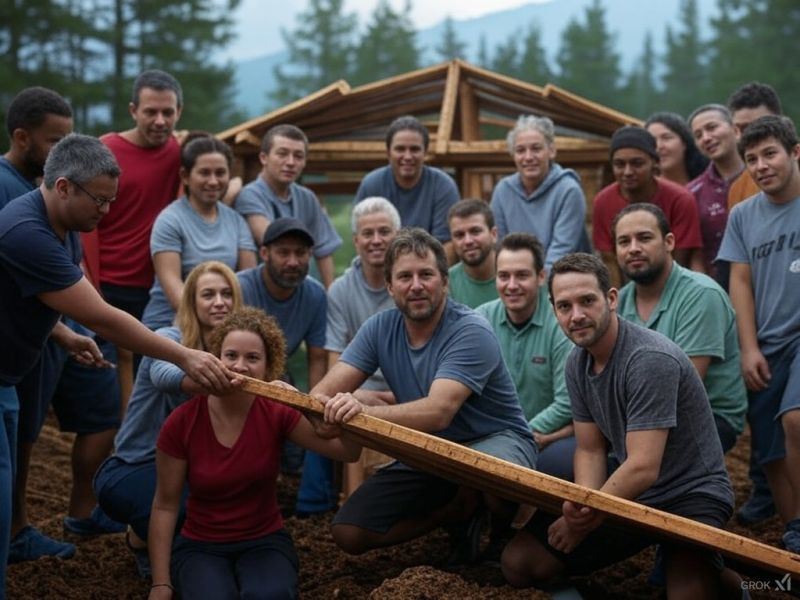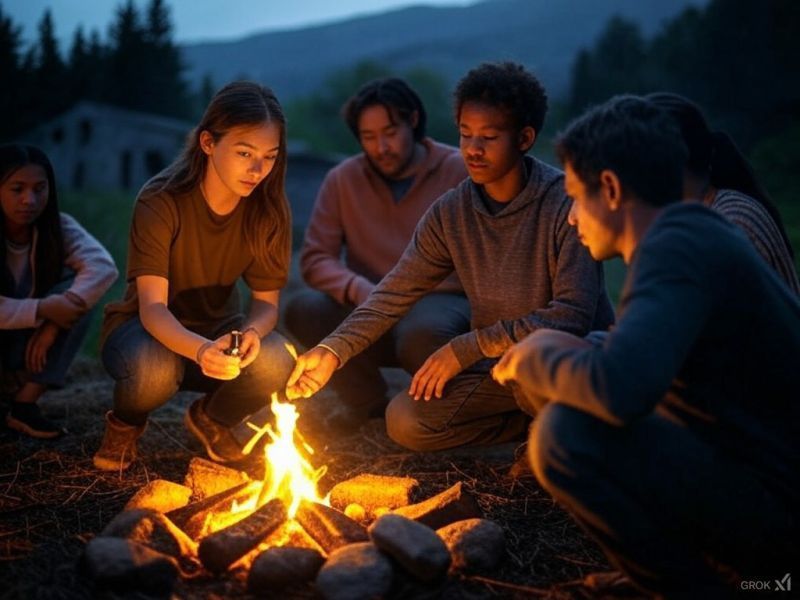If the Elect are to flee to the mountains or remote areas as part of their obedience to Jesus Christ's instructions (such as in Matthew 24:15-20), practical preparedness could be essential for survival and endurance. While spiritual readiness is primary, physical preparedness can enable a person to remain faithful and resilient in challenging circumstances. We are thinking anywhere from 3.5 to almost 7 years to employ survival skills. Here are some relevant survival skills and considerations:

1. Shelter
- Why Important: Exposure to the elements is a leading cause of death in survival situations.
- Skills: Building temporary shelters (e.g., lean-tos, debris huts) from natural materials or portable tarps to stay warm and dry.

2. Water
- Why Important: Humans can only survive about three days without water.
- Skills: Locating and purifying water using natural methods (like boiling or filtering through charcoal) or carrying portable purification tools (e.g., water filters, purification tablets).

3. Food
- Why Important: Though humans can survive for weeks without food, energy and health require sustenance.
- Skills: Identifying edible plants, hunting, trapping, fishing, and preserving food. Learning to store food safely to prevent spoilage or attracting wildlife.
4. Navigation
- Why Important: Navigating rugged terrain without modern tools might be necessary.
- Skills: Reading maps, using a compass, understanding celestial navigation, and recognizing natural landmarks.
5. First Aid
- Why Important: Injuries in the wilderness can quickly become life-threatening without proper care.
- Skills: Treating wounds, managing hypothermia or heatstroke, and having a basic understanding of medicinal plants.
6. Fire-Making
- Why Important: Fire provides warmth, cooking ability, and protection.
- Skills: Starting a fire with matches, lighters, or friction-based tools (e.g., flint and steel, bow drill).
7. Self-Defense
- Why Important: Protection from wild animals or hostile humans might be needed.
- Skills: Basic defense strategies and understanding how to avoid attracting predators.

8. Community Survival
- Why Important: Biblical examples often show believers working together during trials.
- Skills: Sharing resources, supporting each other emotionally and spiritually, and pooling skills.
9. Communication
- Why Important: Staying connected with others who share the same faith or purpose can prevent isolation and maintain hope.
- Skills: Using signal tools, understanding how to communicate without modern technology, and maintaining discretion when necessary.
10. Spiritual Resilience
- Why Important: In times of tribulation, faith will be tested.
- Skills: Regular prayer, memorizing scripture, and relying on God for provision and guidance.
Biblical Precedents:
- Noah prepared for the flood by building the ark (Genesis 6:14-22).
- Joseph stored grain for a famine (Genesis 41:34-36).
- Elijah survived in the wilderness by divine provision and practical resourcefulness (1 Kings 17:1-6).
While ultimate trust should always be in God’s provision and guidance, acquiring survival skills is a prudent step to ensure readiness to endure challenging times while fulfilling His purposes.
